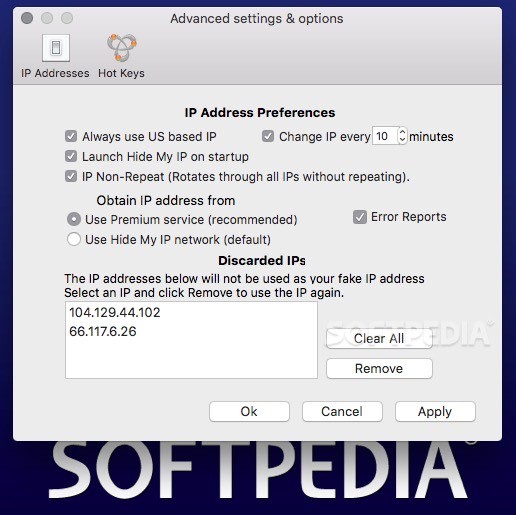
Time Machine vs Arq vs Duplicati vs Cloudberry Backup.There are lots of options, including setting up your own VPN, which is very complicated, or you can even setup your own home VPN-though that doesn’t work if you’re actually at home.
Hide my ip how to#
Now that you’ve decided that you need a VPN, it’s time to figure out how to get one. RELATED: What Is a VPN, and Why Would I Need One? Okay, How Do I Get a VPN? If you’re using a USA-based VPN to access Netflix, Netflix will see your connection as coming from within the USA. The VPN forwards the request for you and forwards the response from the website back through the secure connection. When you browse the web while connected to a VPN, your computer contacts the website through the encrypted VPN connection. You’ll also be able to use the Internet as if you were present at the VPN’s location, which has some benefits if you’re using public Wi-Fi or want to access geo-blocked websites. Because your computer behaves as if it’s on the network, this allows you to securely access local network resources even when you’re on the other side of the world. All your network traffic is sent over a secure connection to the VPN. VPN is a much better solution. When you connect your computer (or another device, such as a smartphone or tablet) to a VPN, the computer acts as if it’s on the same local network as the VPN. The problem with proxy servers is that many of the services out there are pretty shady, spying on you or inserting ads into your browser. When those servers send information back to you, it goes to the proxy server, which then routes it to you. The internet servers you visit see only the IP address of that proxy server and not your IP address. (There’s also Tor, which is great for extreme anonymization, but it’s very slow and for most people isn’t necessary.)Ī proxy server is an intermediary server through which your traffic gets routed.

The two primary ways to hide your IP address are using a proxy server or using a virtual private network (VPN). This is a major problem, as half of the people on the internet in the US only have one choice of ISP, so for many, it’s either be spied on or go without internet. While they all claim they don’t sell customer data, it is certainly worth a lot of money to ad companies, and there is nothing legally stopping them. Under US law, your Internet Service Provider (Comcast, Verizon, etc.) has the right to collect information about you without your permission, just like any website owner does.

The spying and selling of user data aren’t limited to websites either. Anyone with your IP address can do this, and while it won’t give out your actual home address or name to everyone, anyone with access to your ISPs customer data can find you fairly easily.

Here I’ve done a basic IP lookup, which returned my location down to the area of the city in which I live. Your IP address can also be used to track your location, even when your location services are turned off. This is why ads on the internet sometimes feel oddly personal: it’s because they are. They then sell this data to advertising companies who use it to tailor ads straight to you. Whenever you access a website, the server you connect to logs your IP address and attaches it to all the other data the site can learn about you: your browsing habits, what you click on, how long you spend looking at a particular page. The other reason to hide your IP address is simply for more privacy and to prevent misuse of your personal information.


 0 kommentar(er)
0 kommentar(er)
